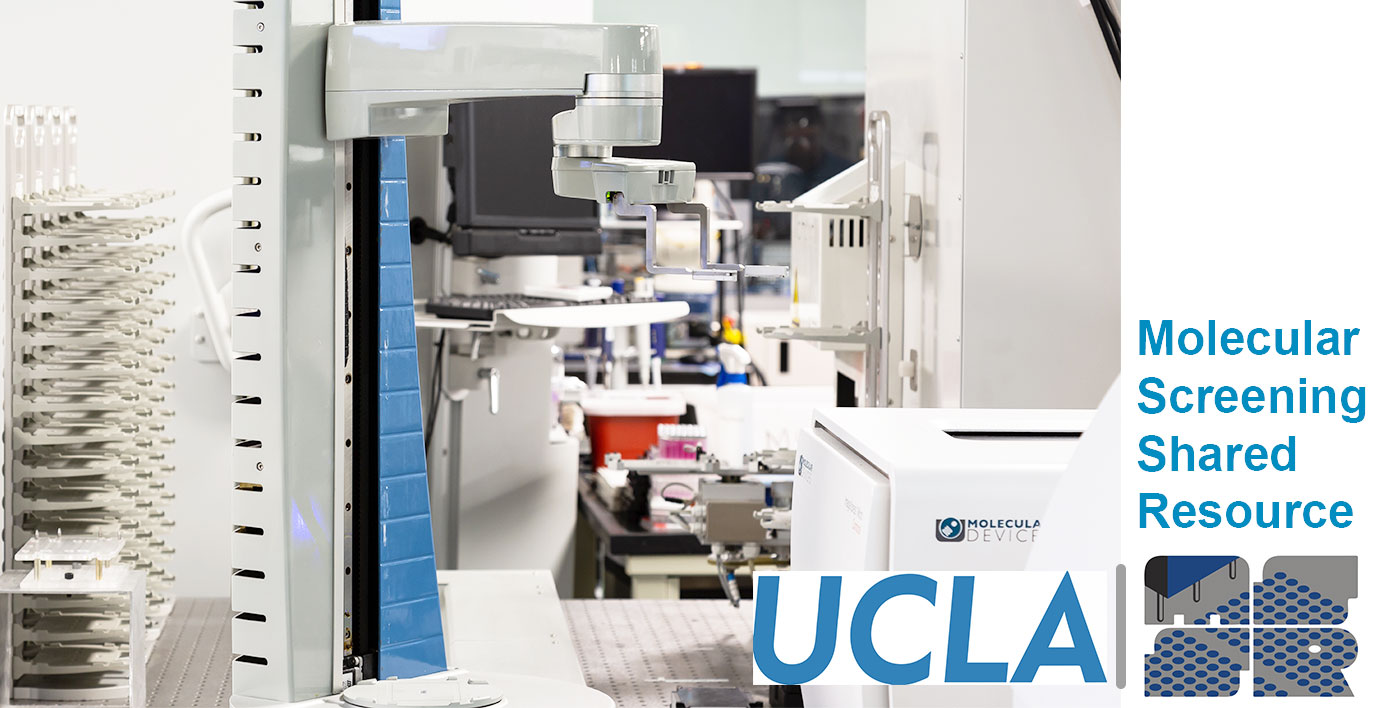Delivering High Throughput Screening to the UCLA Research Community
MSSR follows an Open Access Policy and is open to all research labs on campus and outside entities
Benefits of working with MSSR
The drug development process requires a heavy investment of resources: capital and personnel. Academic researchers are not in the business of developing drugs nor do they possess the resources to do so. Nonetheless, academic researchers are in the business of finding useful probes for their systems of interest. There are at least 3 aspects of the early stages of the drug discovery process which could be beneficial to an academic researcher:
High Throughput Screening (HTS) Technology
The services provided include the use of high throughput screening (HTS) technology, a total of over 300,000 compounds in various libraries, arrayed genome wide sets for CRISPR, cDNA, shRNA and siRNA for mouse and/or human. We also perform data analysis and cheminformatics taking advantage of deep learning approaches using AI and neuronal networks. The MSSR has automated equipment and data collection that make it possible to test > 100,000 compounds on a system of interest per day. Any readout is addressable: From simple plate reader based luminescent reporter gene readouts all the way to highly multiplexed high content screening applications in 3D that rely on our high throughput confocal capabilities.
Chemical Libraries
The libraries available at the MSSR cover FDA approved drugs for re-purposing, chemical genomics libraries (2,700 annotated kinase inibitors, 1,200 GPCR modulators, 2,000 natural compounds etc.) for dissecting biological pathways, and various larger libraries for drug discovery. We also offer libraries of drugs in clinical trials such as kinase inhibitors. The larger the compound collection, the greater chances of finding a hit. Currently, MSSR has over 300,000 chemicals in direct supply, a total of 500,000 compounds accessible in our network and plans to expand even further!
Databases
The MSSR maintains databases of all assays run and their results. By cross referencing and collaborating with researchers who have employed related assays, additional information may be gained providing deeper insight into processes fundamental to health and disease.

